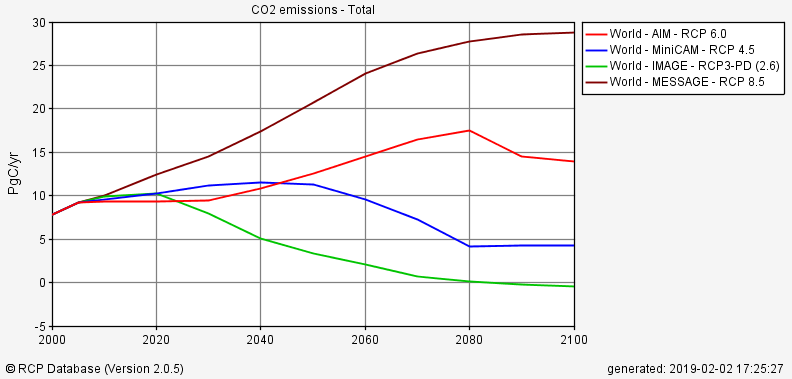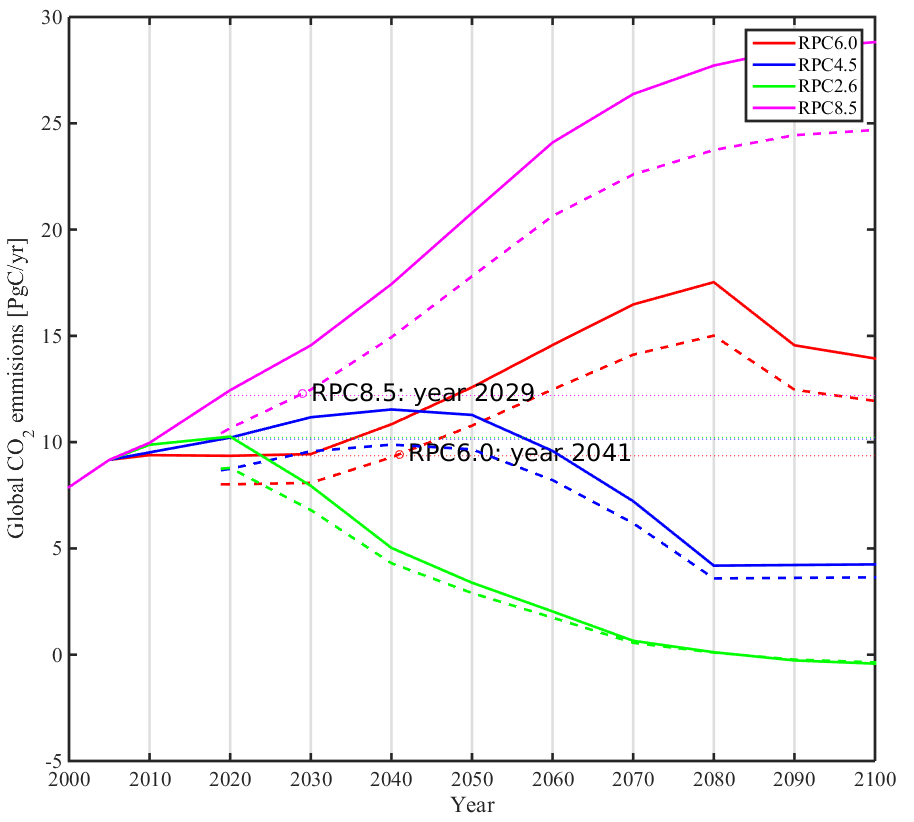Given the current global CO2 emission trends, if the US overnight magically went to zero emissions (without affecting worldwide emissions), how many years until global CO2 emissions return to exactly where they are now.
-
2$\begingroup$ Hi! Welcome to Earth Sciences SE. That will depend on the emission scenario you pick for the future, have a look at en.wikipedia.org/wiki/Special_Report_on_Emissions_Scenarios The most specific your question is, the better it can be answered. $\endgroup$– Camilo RadaCommented Feb 1, 2019 at 21:02
-
$\begingroup$ @CamiloRada If we can figure out the methodology to calculate it I'll do them all. $\endgroup$– RobCCommented Feb 2, 2019 at 15:51
-
$\begingroup$ you can take a look here climate.nasa.gov/climate_resources/24/… you will see the time of how fast the CO2 increase compared to how slow it falls,it realy scares me. $\endgroup$– trond hansenCommented Feb 2, 2019 at 17:58
1 Answer
That will depend on the emission scenario you pick for the future, the more recent scenarios are the RCP's (Representative Concentration Pathway).
RCP scenarios
The scenarios involve future pathways in the emissions of a large range of different chemicals (Greenhouse gases and aerosols). Each RCP have a temperature tag, for example RCP6.0, is a scenario that consider many geopolitical, social and economical predictions and that would result in an emission pathway that would the radiative forcing (input energy to Earth) by 6.0 W/m$^2$ by year 2100.
The data associated with the RCPs can be accessed in the RCP Database, this is a plot generated there with Global $\text{CO}_2$ emissions for all four RCP scenarios.
According to this data, the U.S. was responsible for 14.34% of the global emissions of $\text{CO}_2$ on 2015.
If we consider that overnight all scenarios switch to a version of themselves with a 14.34% emissions reductions (i.e. like if the US stopped all its emissions suddenly), the plot would look like this:
Where the dashed line is the new emission pathway and the thin dotted line marks the global emission level before the US $\text{CO}_2$ shutdown.
We can see that for RCP2.6 and RCP4.5, the world would never get back to emission rates as high as those of today. And for the more pessimistic scenarios it would take at least 10 years to go back to those levels: For RCP6.0 it would go back to current levels by 2041 and for RCP8.5 by 2029.
There are many simplifications on this calculation, but gives you a first approach. If you are interested in another emission scenario you can apply the same methodology or a better one, but maybe this can serve as a starting pint.
-
$\begingroup$ Do they know the certainty of the RCP estimates? A lot of the world is striving for a much increased footprint. Reduction at any point this century seems unlikely. $\endgroup$– RobCCommented Feb 3, 2019 at 20:55
-
$\begingroup$ We don't know the certainty, that's is a political prediction problem more than an Earth Sciences problem. Now, the RCP2.6 seems impossible (emissions reductions starting next year), and looks like we live in a RCP8.5-ish scenario ( look at this question: earthscience.stackexchange.com/q/13577/11908 ) but who knows what would happen in 40 years from now. $\endgroup$ Commented Feb 3, 2019 at 21:10
-
$\begingroup$ If we stupid humans make the CO2 any lower we could KILL all life on this planet. What are you people thinking? What do you know about CO2 and atmospheric gases? What is wrong with us that we don't ask questions...SOONER!? 40 years from now we might if we are lucky be pulling out of a Grand Solar Minimum mini ice age without too much catastrophe. That dang New Madrid Fault has gone off EVERY SINGLE GSM. Every single one and at no other time. I mean that should count for something?? I've already given tons of references. Unbelievable. Camilo, you ARE asking the best questions. $\endgroup$– stormyCommented Feb 15, 2019 at 22:06

